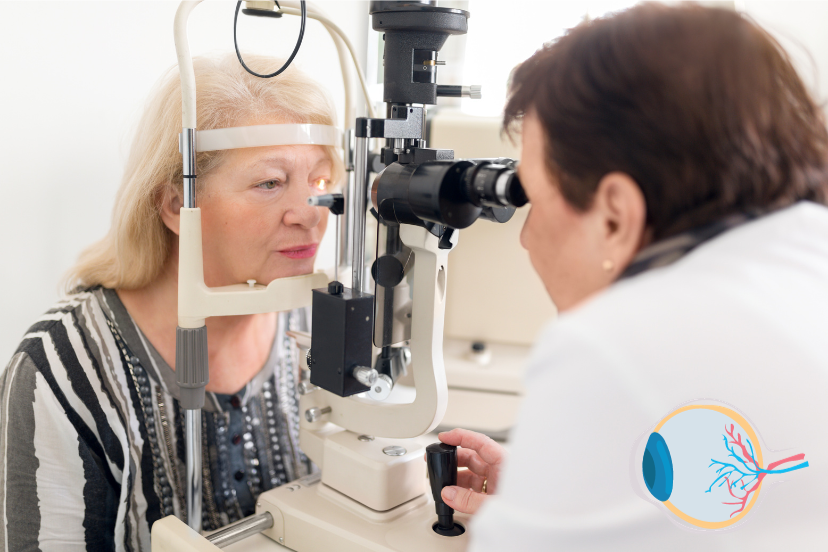How to Prevent Glaucoma
Discover effective strategies for preventing glaucoma and safeguarding your vision. Learn how to prevent glaucoma with our expert tips. Dive in now! As someone passionate about vision health and eager to provide helpful suggestions, I understand the significance of maintaining good eyesight and preventing eye diseases like glaucoma. Glaucoma is a serious eye condition that can lead to vision loss if left untreated. In this “How to prevent glaucoma” article, I will share valuable suggestions and the reasons behind them to help you prevent glaucoma and preserve your vision.
Introduction to Glaucoma
Glaucoma damages the optic nerve, causing vision loss. Elevated intraocular pressure often leads to this condition. Early detection and preventive measures can reduce the risk of developing glaucoma.
Definition of Glaucoma
Glaucoma is a group of eye conditions that damage the optic nerve, often caused by increased intraocular pressure (IOP). This damage can lead to gradual vision loss and, if untreated, blindness.
Importance of Preventing Glaucoma
Preventing glaucoma is crucial because vision loss due to glaucoma is irreversible. Early detection and adopting preventive measures can significantly reduce the risk of developing this condition.
Understanding Glaucoma
Understanding glaucoma involves recognizing its types, causes, and risk factors. Age, high eye pressure, and genetics can increase the likelihood of developing this eye condition. Regular eye exams are vital.
Types of Glaucoma
There are several types of glaucoma, including open-angle glaucoma, angle-closure glaucoma, and normal-tension glaucoma. Each type has its own characteristics and risk factors.
Causes and Risk Factors
Understanding the causes and risk factors of glaucoma is essential. Age, family history, high eye pressure, and certain medical conditions can increase the likelihood of developing glaucoma.
Early Detection
Early detection of glaucoma is crucial. Regular eye exams help identify elevated eye pressure and other signs, enabling timely intervention and minimizing the risk of vision loss.
The Importance of Regular Eye Exams
Regular eye exams are the cornerstone of glaucoma prevention. These exams can detect elevated eye pressure and other early signs of glaucoma before significant damage occurs.
Signs and Symptoms of Glaucoma
Knowing the signs and symptoms of glaucoma, such as blurred vision, eye pain, and halos around lights, can prompt early intervention and prevent further damage.
Lifestyle Changes
Making lifestyle changes is essential for preventing glaucoma. A balanced diet rich in antioxidants, exercise, and stress management can lower the risk of developing this sight-threatening condition.
Importance of a Healthy Diet
A balanced diet rich in antioxidants, vitamins, and minerals can promote eye health. Foods like leafy greens, carrots, and fish are excellent choices for maintaining good vision.
Exercise and Its Role in Preventing Glaucoma
Regular physical activity improves blood flow to the eyes and helps regulate eye pressure. Incorporating exercise into your daily routine can be a powerful preventive measure.
Managing Intraocular Pressure
Managing intraocular pressure involves using prescription eye drops and medications. Surgical options, like laser therapy and drainage devices, may be necessary to lower eye pressure effectively.
Medications and Their Effectiveness
Prescription eye drops and medications can help lower intraocular pressure. These treatments are often recommended for individuals at risk of glaucoma.
Surgical Options for Glaucoma
Surgical procedures like laser therapy or drainage devices may be necessary in cases where medications are insufficient to reduce eye pressure.
Eye Protection
Protecting your eyes is crucial. Wearing safety glasses and UV-protective sunglasses shields your eyes from potential harm and reduce the risk of eye injuries and glaucoma.
Importance of Protecting Your Eyes
Wearing safety glasses during high-risk activities and sunglasses that block harmful UV rays can protect your eyes from injuries and reduce the risk of glaucoma.
Wearing Sunglasses and Safety Glasses
Investing in quality sunglasses with UV protection and safety glasses when needed can safeguard your eyes from potential harm.
Stress Reduction
Reducing stress plays a vital role in preventing glaucoma. Stress management techniques like deep breathing and meditation help lower stress levels, minimizing the risk of elevated eye pressure.
The Link Between Stress and Glaucoma
Chronic stress can elevate eye pressure, increasing the risk of glaucoma. Learning stress management techniques can be beneficial for your overall eye health.
Stress Management Techniques
Practicing relaxation techniques, such as deep breathing, meditation, and yoga, can help reduce stress levels and support eye health.
Smoking and Alcohol
Smoking increases the risk. Quitting smoking protects your eyes. Excessive alcohol consumption can elevate eye pressure. Moderation in alcohol intake is advisable for preventing glaucoma.
The Impact of Smoking on Eye Health
Smoking is a known risk factor for glaucoma. Quitting smoking not only benefits your lungs but also protects your eyes.
The Role of Alcohol in Glaucoma
Excessive alcohol consumption can lead to eye pressure spikes. Moderation in alcohol intake is advisable to prevent glaucoma.
Supplements and Nutrition
Nutrients like vitamin C, vitamin E, zinc, and omega-3 fatty acids support eye health. Consulting a healthcare professional can help determine the necessary supplements for maintaining good vision.
Nutrients That Promote Eye Health
Certain nutrients like vitamin C, vitamin E, zinc, and omega-3 fatty acids can support eye health. Consider incorporating these into your diet or as supplements.
Recommended Supplements
Consulting with a healthcare professional can help determine if specific supplements are necessary for your eye health.
Sleep and Eye Health
Quality sleep benefits eye health. Poor sleep patterns contribute to eye strain and potentially increase the risk of glaucoma. Establish a regular sleep schedule and create a conducive sleep environment.
The Connection Between Sleep and Glaucoma
Quality sleep is essential for overall health, including eye health. Poor sleep patterns can contribute to eye strain and potentially increase glaucoma risk.
Tips for Better Sleep
Establishing a regular sleep schedule, creating a conducive sleep environment, and avoiding screen time before bedtime can promote better sleep and eye health.
Hydration
Proper hydration ensures well-lubricated and nourished eyes. Aim for recommended daily water intake, which averages at least eight glasses (64 ounces), to maintain optimal eye health.
The Role of Hydration in Preventing Eye Diseases
Proper hydration ensures that your eyes are adequately lubricated and nourished. Aim for the recommended daily water intake to maintain eye health.
Daily Water Intake Recommendations
On average, aim for at least eight glasses (64 ounces) of water per day, adjusting based on your individual needs and climate.
Regular Exercise
Regular exercise enhances eye circulation and maintains flexibility. Eye exercises, like focusing on near and far objects, contribute to overall eye health and help prevent glaucoma.
Exercises for Healthy Eyes
Eye exercises, such as focusing on near and far objects, can help maintain eye flexibility and improve circulation.
How Exercise Improves Eye Circulation
Physical activity enhances blood flow, including to the eyes, which can contribute to overall eye health.
Mindfulness and Eye Health
Practicing mindfulness benefits eye health. Mindfulness techniques, including the 20-20-20 rule and regular breaks from screens, alleviate eye strain and promote relaxation, supporting overall eye well-being.
Practicing Mindfulness for Eye Health
Mindfulness techniques can reduce eye strain and promote relaxation, benefiting your eyes in the long run.
Reducing Eye Strain
Taking breaks from screen time, practicing the 20-20-20 rule (every 20 minutes, looking at something 20 feet away for 20 seconds), and blinking regularly can alleviate eye strain.
How to Prevent Glaucoma – Conclusion
In conclusion, preventing glaucoma is within your control by adopting a holistic approach to eye health. Regular eye exams, lifestyle changes, stress management, and protective measures can go a long way in safeguarding your vision. Remember that your eyes are precious, and investing in their well-being is a small effort compared to the priceless gift of clear vision.
By following these guidelines and staying informed about your eye health, you can take proactive steps towards preventing glaucoma and enjoying clear vision for years to come.
Please note that this article should not replace professional medical advice. Consult a healthcare professional for an accurate diagnosis and tailored treatment plan.
Frequently Asked Questions (FAQs)
Is glaucoma preventable entirely?
While it may not always be entirely preventable, early detection and proactive measures can significantly reduce the risk of developing glaucoma.
How often should I have an eye exam to check for glaucoma?
It is recommended to have a comprehensive eye exam every one to two years or as advised by your eye care professional.
Can a healthy diet alone prevent glaucoma?
A healthy diet is an essential part of prevention, but it should be combined with regular eye exams and other preventive measures.
Are there any natural remedies for lowering eye pressure?
Some natural remedies, like dietary changes and eye exercises, may help lower eye pressure, but they should be discussed with a healthcare professional.
At what age should I start being concerned about glaucoma?
While glaucoma can develop at any age, the risk increases with age, so it’s advisable to start paying attention to eye health in your 40s and beyond.




